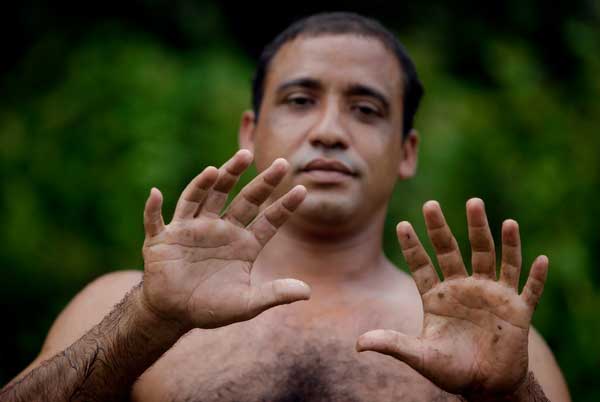
And it is more common than you may think. As a cell copies its DNA before dividing, a "typo" occurs every 100,000 or so nucleotides. That's about 120,000 typos each time one of our cells divides.
Most commonly, a single base is substituted for another. Sometimes a base is deleted or an extra base is added. Fortunately, the cell is able to repair most of these changes. When a DNA change remains unrepaired in a cell that will become an egg or a sperm, it is passed down to offspring. Thanks to mutation, we all have some new variations that were not present in our parents.
People commonly use the terms "mutant" and mutation" to describe something undesirable or broken. But mutation is not always bad. Most DNA changes fall in the large areas of the genome that sit between genes, and usually they have no effect. When variations occur within genes, there is more often a consequence, but even then mutation only rarely causes death or disease. Mutation also generates new variations that can give an individual a survival advantage. And most often, mutation gives rise to variations that are neither good nor bad, just different.